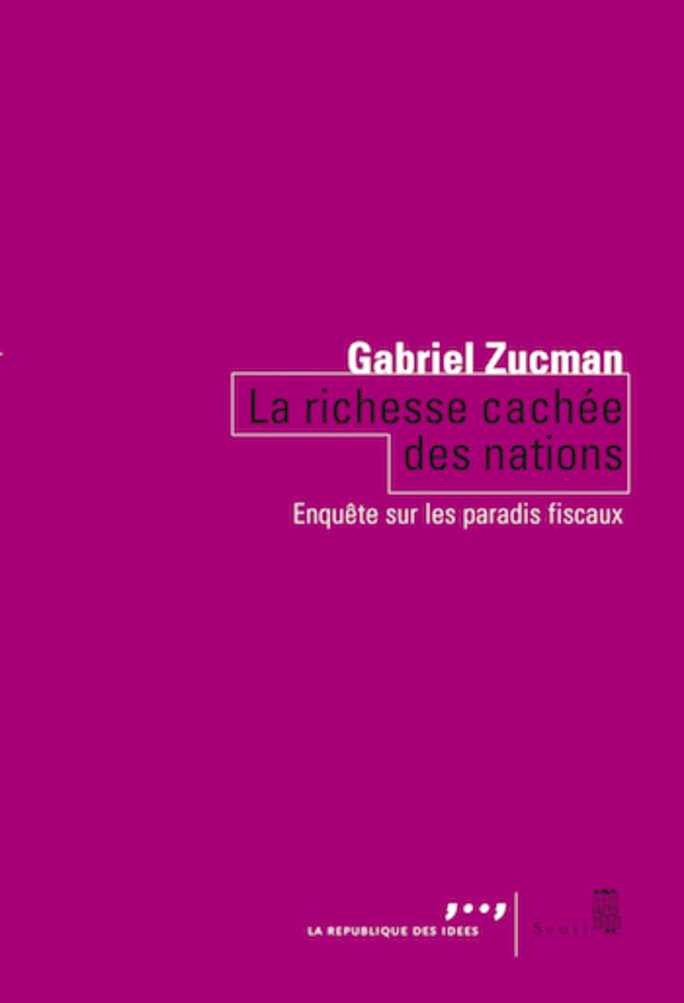Earlier this week, Kostas Vaxevanis, the editor of Greek magazine Hot Doc, which last year published a list of the names of more than 2,000 wealthy Greek individuals and companies with secret bank accounts in Switzerland, was finally acquitted for the second time by a court in Athens of charges of violation of privacy and breach of data protection laws.
The so-called ‘Lagarde list’ of 2,059 Greek account holders was originally passed to the Greek authorities in 2010 by then-French finance minister Christine Lagarde, now head of the International Monetary Fund, but no investigation was launched. Greek finance minister Yannis Stournaras even claimed the list had been lost.
The document was part of a much longer list of secret bank accounts held at a branch of the HSBC bank in Geneva, and which was originally passed to the French, British and German authorities in 2008 by whistleblower Hervé Falciani, a former employee of the bank.
The exposure by Hot Doc caused consternation in Greece, crippled by a huge public debt crisis that has led to the introduction of some of the most draconian austerity measures ever seen in post-WWII Europe, imposed by the International Monetary Fund (IMF, the European Union (EU) and the European Central Bank (ECB) in exchange for successive bailouts.
“In all, it is estimated that 13 billion euros were transferred [from Greece] into foreign bank accounts these past ten years,” Vaxevanis told Mediapart in an interview last year. “The ‘Lagarde list’ contains accounts that totalled, when it was drawn up, two billion euros. It is certain that there are other lists, other banks [...] The ‘Lagarde list’ is only the tip of the iceberg.”

French economist Gabriel Zucman has been studying the hidden iceberg of tax evasion at a global level, and presents his findings in a book, ‘La Richesse cachée des nations - Enquête sur les paradis fiscaux’’(The hidden wealth of nations - -an investigation into tax havens), published in France in November (see more bottom of page 2). The conclusions of the assistant professor with the London School of Economics, who is also a visiting scholar with the University of California, Berkeley, are eye-watering.
“There has never been as much money in tax havens as there is in 2013,” says Zucman, 27, in an interview with Mediapart. “According to my calculations, [the equivalent of] 8% of the worldwide financial assets of households are placed there and escape any tax. That is a wealth of 5,800 billion euros, of which 350 billion are held by French people. That’s 25% more than in April 2009, when the G-20 meeting in London announced the ‘end of banking secrecy’.”
He points out that over this same four-year period, the total wealth placed in Swiss financial institutions rose by 14%.
Zucman believes that tax evasion on wealth held in secret bank accounts represents a loss to the French state of 17 billion euros. But he says if France employed more enthusiasm to use the means at its disposal for tracking down tax evasion – without which France’s public debt would be 70% of GDP and not 95% of GDP as it is today - some 10 billion euros in lost tax returns could be swiftly recovered.
The figures he cites are based on his own research, using sources that include the International Monetary Fund (IMF), national balance of payments accounts, bank data and notably also the quarterly reports published by the Swiss National Bank – which he is the first to study from a perspective of calculating tax evasion.
“There exists little incontestable data that one can use on these issues, and I try to use all of it,” he says. His research sheds further light on a well-known phenomenon which is that the reported assets of all countries are considerably less than their declared liabilities; this is, he calculates, a shortfall of 4,800 billion euros lost in financial flows into tax havens.
He provides the following example: if a French citizen buys a share in US internet search engine giant Google from an undeclared bank account in Switzerland, the US authorities will register that share as a liability, because sold outside of the US. But Switzerland will record no asset because it knows the buyer of the share is French. Meanwhile, France will not record this as an asset either, because it is unaware that the purchase took place.
Zucman does concede that while the number of those in the “super-rich” category has risen significantly over recent years, “it must be remembered that perhaps they would be doing even better if nothing had been done since 2009”.
His book heavily underlines the important role in international tax evasion played by Switzerland, the British Virgin Islands and Luxembourg. Of these, Switzerland sits at the top, managing an estimated 1,800 billion euros-worth of assets belonging to non-residents, either placed in Swiss-based accounts or in subsidiaries of Swiss banks in places such as Hong Kong, Singapore or Jersey. Of that sum of assets managed in Switzerland but owned by non-residents, 1,000 billion euros-worth belong to European citizens. “That’s equivalent to 6% of the financial assets of households across the European Union, historically its highest level,” says Zucman.
He reports that an estimated two-thirds of these sums managed in Switzerland are placed into collective investment schemes, half of which are domiciled tax-free in Luxembourg (which was this month slammed by an OECD-led international tax forum for its failure to abide by international transparency codes). As part of precautions to keep the funds untraceable by national tax authorities, the banks handling the schemes siphon the money via offshore companies created and based in places such as the British Virgin Islands or Panama, and whose names appear as the owner. Zucman calculates that an estimated 60% of foreign accounts held in Switzerland are in the names of offshore companies, trusts and foundations.
'The fight has only just begun'
Zucman maintains that Luxembourg has “commercialized its sovereignty” like no other country, allowing the financial sector, built up on banking secrecy and representing 40% of its GDP, to impose its laws on this tiny state with a population of just 500,000. He even suggests its possible exclusion from the EU. “Nothing in the treaties, the spirit, of European construction, nor in democratic reasoning, justifies that a platform for the global financial industry has an equal voice to that of other countries,” he writes in his book.

This detailed and methodic account of worldwide fraud shines a harsh light on the triumphalism expressed by some governments and international institutions over progress in fighting tax evasion. While the French finance ministry recently announced that 4,300 French citizens had, since June and in the aftermath of the Jérôme Cahuzac affair, declared to the tax authorities their hitherto secret foreign bank accounts, another 80,000 are estimated by Zucman to continue holding accounts in Switzerland.
Zucman proposes an ambitious project, calling for the urgent establishment of a “worldwide” register, under the management of the IMF, of financial property in circulation, from shares to derivatives, “to know who has what”. He likens this register, what he calls a “world financial cadaster” to the geographical cadastral survey established in post-revolution France in 1791 in an effort to improve the efficiency of taxation on property. “The challenge, which is not superhuman, is to collect together information that exists and to transfer the management of it to a public body,” says the economist.
But because this register would be bound to feature assets held in the names of shell corporations, Zucman calls for the introduction of a parallel measure that would be a yearly global tax deducted at source on capital “up to 2% of the value of each financial security” as recorded on the world register and which would be managed by the IMF. If the holder of the securities questions the taxation rate applied to them, they would have to address themselves openly to their appropriate tax authority.
In fact, such a taxation scheme exists already in Switzerland. “Since 1945, Switzerland deducts tax at source, up to 35% of the interests and dividends of all the financial products on its territory, and it’s down to the owners of these products to come forward to check whether they should be taxed at that rate,” Zucman explains.
He dismisses any suggestion that his plan is an unpractical ideal. “My project is anything but utopian,” he says. “I didn’t write a book to present wonderful utopias. I am interested in concrete issues, and in the way of making things operational. The world financial cadaster could come into being in the relatively short term. It already exists, but in a dispersed manner. And an anticipatory tax is completely viable technically.”
However, some of Zucman’s propositions run up against very real barriers, such as his suggestion that Luxembourg could be excluded from the EU, which has no legitimacy in European law. European law is also the major obstacle for his suggestions on how to enforce his world financial cadaster. To encourage tax havens to cooperate, he proposes the threat of customs sanctions against them which are equivalent to the cost of lost tax revenue: this would be applied by slapping a huge tax on imports, such as those from Switzerland or Hong Kong. In the case of the latter, he calls for a coalition to be formed by the US, Britain, France and Germany to threaten a 50% tax on imports. But under EU law, European customs duties must be applied in a uniform manner for imports from all non-EU countries.
The office of the European Commissioner for Taxation and Customs Union, Audit and Anti-Fraud, Algirdas Gediminas Šemeta, underlines that no single EU country is entitled to unilaterally apply customs sanctions. As for Switzerland, it also has a free trade agreement with the EU.
Zucman is for bulldozing a way through, and cites the example of what he estimates to be 15 billion euros lost by Germany, France and Italy in annual tax returns on wealth hidden by their citizens in Switzerland. “What I propose is that the German, French and Italian states themselves begin the process by lodging a complaint because it is after all them, not the banks, which have been stolen from,” explains Zucman. “After that, it’s one or the other result: either the [European] Commission judges their move to be admissible, in which case the customs duties are applied, across the EU, or it finds the Franco-German-Italian request non-admissible but then it will have to explain why. And with a bit of luck, Switzerland will have [already] buckled under the threat.”
“The fight has only just begun,” he says. “Important progress has been made, I don’t deny it, but the gap between the announcements on the one hand and the action and figures on the other is quite considerable. Those who govern, and the technocrats who are thinking about these issues, underestimate the progression of financial secrecy. They think that with treaties for exchanging information, either automatic or upon request, we’ll overcome the problem from one day to the next, which is far from being the case.”
- Gabriel Zucman’s book ‘La Richesse cachée des nations- Enquête sur les paradis fiscaux’ is co-published in France by Le Seuil-La République des idées, priced 11.80 euros.
-------------------------
English version by Graham Tearse


